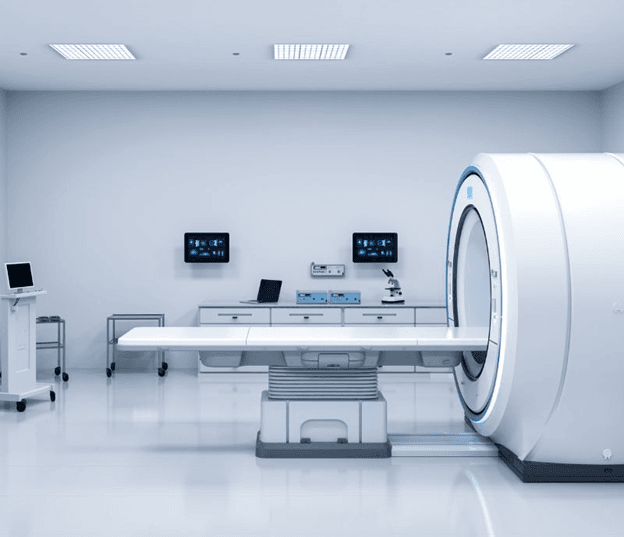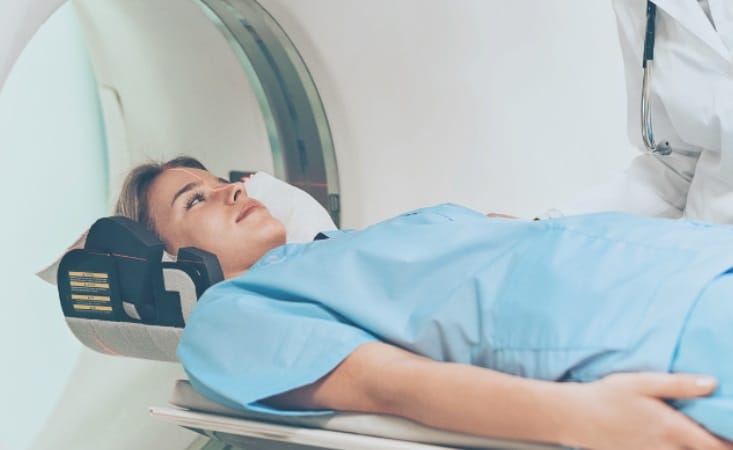MRI (Magnetic Resonance Imaging) scans have become an invaluable tool in modern medical diagnostics. Unlike X-rays or CT scans, MRI scans use powerful magnets and radio waves to create detailed images of the inside of the body, allowing doctors to diagnose and monitor a wide range of conditions without invasive procedures.
In the UK, while MRI scans are commonly available through the NHS, many individuals opt for private MRI scans for faster access, convenience, or specialized imaging services.
Here’s a comprehensive look at private MRI scans in the UK, the types available, and how they assist in disease identification.
What is an MRI Scan?
An MRI scan uses a combination of magnetic fields and radio waves to produce highly detailed images of the body’s organs, tissues, and skeletal system. The process involves lying on a table that slides into a cylindrical machine, which then generates these images.
MRI scans are non-invasive, painless, and can provide critical insights into both soft tissues and bones, making them ideal for diagnosing a range of health issues.
Why Opt for a Private MRI Scan?
While the NHS provides MRI scans, waiting times can sometimes be long due to demand. A private MRI scan, on the other hand, can often be scheduled promptly, allowing for faster diagnosis and treatment.
Private MRI facilities in the UK often provide flexible appointment timings, a more personalized experience, and specialized types of MRI scans that may not always be available through public healthcare options.
Types of MRI Scans Available in the UK

Different types of MRI scans are tailored to specific parts of the body or medical conditions. In private MRI clinics across the UK, patients can access a variety of specialized scans:
- Closed-Bore MRI: A traditional type with a narrow, tube-like structure, often used for detailed imaging of the brain, spine, joints, and abdomen.
- Open MRI: This type has open sides or wider openings, suitable for patients who may feel claustrophobic in closed-bore machines. It’s often used for larger body areas and can be more comfortable for anxious patients.
- Upright MRI: Allows patients to stand or sit during the scan, ideal for those who struggle with lying down or for imaging that requires different body positions, such as weight-bearing spine or joint scans.
- 3T MRI (3 Tesla): High-field MRI with strong magnets, providing very detailed images for complex areas like the brain, breast, and musculoskeletal system, useful in specialized diagnostic centers.
- 1.5T MRI (1.5 Tesla): Standard MRI strength, commonly used in general diagnostics for areas such as the chest, abdomen, pelvis, and limbs.
- Functional MRI (fMRI): Measures brain activity by detecting blood flow changes, commonly used for neurological research, brain mapping, and pre-surgical planning.
How MRI Scans Help in Disease Identification
MRI technology has significantly enhanced the ability to detect, diagnose, and monitor various diseases. Here’s how different MRI scans aid in identifying health conditions:
1. Detecting Tumors and Cancer
MRIs are instrumental in locating tumors in the brain, spine, liver, pancreas, and other organs. They provide detailed images that help doctors differentiate between benign and malignant tumors, guiding treatment decisions.
Whole-body MRI scans can identify potential cancerous growths even before symptoms appear, promoting early intervention.
2. Evaluating Heart and Vascular Health
Cardiac MRI provides a clear view of heart structure and blood vessels, allowing for the diagnosis of conditions like heart disease, atherosclerosis, and heart defects.
It can measure the heart’s blood flow, detect scarring from previous heart attacks, and assess heart muscle function, guiding effective treatment plans.
3. Diagnosing Neurological Disorders
Brain MRIs help identify conditions such as multiple sclerosis, strokes, aneurysms, and tumors. Functional MRI (fMRI) also allows neurologists to study brain activity, providing insights into disorders like epilepsy and Alzheimer’s disease.
4. Managing Chronic Pain and Spinal Disorders
A spinal MRI is essential for diagnosing issues related to chronic back or neck pain, sciatica, herniated discs, or spinal stenosis.
This scan can detect even small nerve impingements and soft tissue abnormalities, providing a pathway for effective pain management and treatment.
5. Assessing Musculoskeletal Injuries
Musculoskeletal MRIs are vital for identifying joint injuries, ligament tears, and tendon damage, which are especially common among athletes and active individuals.
This type of scan offers a clear look at soft tissues around bones, providing precise diagnoses for conditions like torn ligaments or cartilage damage.
6. Monitoring Abdominal and Pelvic Health
Abdominal and pelvic MRIs can detect liver diseases, kidney stones, pancreatic conditions, and uterine or ovarian abnormalities.
They are particularly useful for people with ongoing digestive or reproductive health issues, as they provide a non-invasive way to monitor organ health over time.
7. Early Detection Through Preventive Scans
Whole-body MRIs are increasingly being used as preventive health measures. By scanning the entire body, doctors can catch potential health issues in the early stages, making treatment more effective and less invasive.
Locations for Private MRI Scans in the UK
Private MRI facilities are widely available in many parts of the UK. Here’s a look at major cities and reputable private MRI providers in each:
- London: The capital offers numerous private MRI facilities, including the London Imaging Centre and Harley Street MRI.
- Manchester: In the North West, Manchester offers options such as The Manchester Institute of Health & Performance and Spire Manchester Hospital.
- Birmingham: The Spire Parkway and BMI Edgbaston Hospital in Birmingham are popular choices.
- Edinburgh: The Edinburgh Clinic and Spire Murrayfield Hospital provide private MRI services in Scotland’s capital.
- Leeds: Nuffield Health Leeds Hospital and Spire Leeds Hospital are known for their private MRI services.
- Bristol: Bristol has options such as the Bristol MRI Centre and Nuffield Health Bristol Hospital.
- Glasgow: In Glasgow, BMI Ross Hall and The Edinburgh Clinic provide MRI services for private patients.
- Liverpool: Private MRI options in Liverpool include Spire Liverpool Hospital and Pall Mall Medical, both offering comprehensive diagnostic imaging services.
Conclusion
MRI scans have transformed medical diagnostics by offering highly detailed images that support accurate and early disease detection. Private MRI scans in the UK provide a flexible and convenient option for patients seeking timely healthcare solutions.
Whether for preventive health checks or specialized diagnostics, private MRI facilities across the UK offer a range of options tailored to various medical needs.
This article is published by our independent team of health and wellness pundits that publish original and informative content to empower readers to take charge of their health and embark on a physically, mentally, and emotionally balanced lifestyle.





































